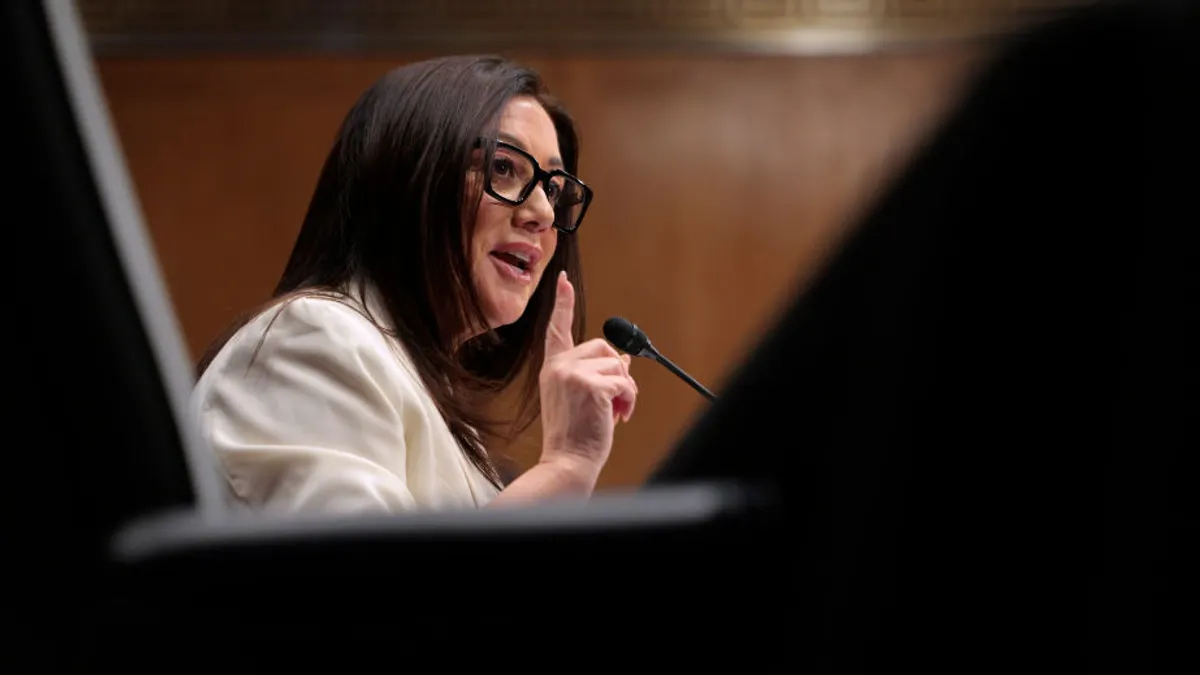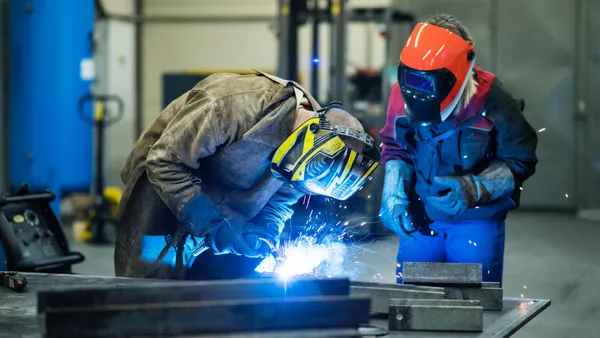Not only does the U.S. federal government set the tone for corporate America, but federal funding and federal talent development are two aspects of labor that can directly benefit employers.
While government funding hangs in the balance for some private businesses, apprenticeships may be safe under President Donald Trump’s pick for U.S. Department of Labor secretary.
In her contentious confirmation hearing on Feb. 19, Lori Chavez-DeRemer praised initiatives to turn the lion’s share of manufacturing back to American workers, as opposed to foreign workers.
But first, what are federal apprenticeship programs?
For context, apprenticeship programs with the federal government provide talent with “opportunities for structured on-the-job training under the direction of an experienced mentor, incremental wage increases, related educational experience, industry-recognized credentials, and a path towards a definitive career path in public service.”
In 2019, the government put out a resource underscoring why the apprenticeship program should matter to private employers:
- Apprenticeships can help “recruit and develop a highly-skilled workforce” to grow one’s business.
- They can “improve productivity, profitability, and an employer’s bottom line.”
- They can create “flexible training” options for upskilling.
- They can “minimize liability costs” due to proper training.
Employers in certain states can also receive tax credits or be able to offer employee tuition benefits through apprenticeship programs. The government resource also noted that it could help with employee retention.
What Chavez-DeRemer said about upskilling
Sen. Jon Husted, R-Ohio, raised talking points about skills-based hiring and manufacturing labor during Chavez-DeRemer’s confirmation. Husted brought up the Made in America initiative, which promotes “policies designed to increase reliance on domestic supply chains and ultimately reduce the need to spend taxpayer dollars on foreign-made goods.”
“What we don't want is for other countries to get ahead of the game, ahead of America,” Chavez-DeRemer said, implying she would look for ways to see “how [the administration] can work together with the American workforce, the employers and the employees, and how we can work with Congress to determine what that looks like.”
She expressed her desire to “support the American worker” and to “have those American workers upskilled and re-skilled.”
“This is going to be great for America to grow that economy and then share in that profit with the employees,” Chavez-DeRemer said.
Husted book-ended Chavez-DeRemer’s statement, adding that “the final component of that is many, many Americans can have higher paying jobs if they have the right kind of skills.”
“They don't need to go to college. They can get there through apprenticeships,” Husted said.
What’s next, amid a transfer of power
While Trump’s DOL pick has yet to be confirmed, Chavez-DeRemer said that one of the president’s top priorities is “expanded apprenticeships, is the investment in apprenticeships.” She called on her experience as a former mayor, saying that she wanted to connect skilled talent to business owners in their communities.
“Not everybody is going to get that four-year degree,” she said. The DOL has already sponsored National Youth Apprenticeship Week, inspired by National Apprenticeship Week, the earning initiative aims to upskill teenagers and young adults.
Still, the changing of the guard brings with it some potential rule changes — or at least, re-proposals.
During the Biden administration, the DOL proposed to tighten the labor standards for apprenticeships; this drew the wrath of Republicans and business groups, who said the rule would place an unnecessary strain on employers engaged in the registered apprenticeships.
In December 2024, a year after the proposal, the DOL told HR Dive it would no longer be moving forward with that rule.
Likewise, the Biden administration rescinded a Trump-era proposal for “Industry Recognized Apprenticeship Programs.”
As the Oval Office changes hands, that may be on the table once more.
The only piece of legislation that seems intact is an executive order signed by President Joe Biden, aiming to expand the reach and utility of apprenticeships — including a directive asking agencies to see where grant recipients and contractors could use workers who participated in apprenticeships.














